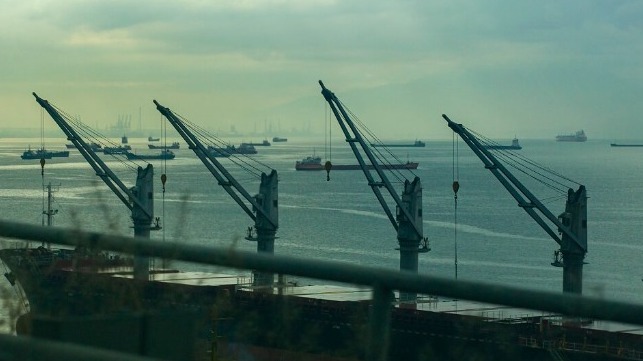Intercargo: Only One Bulk Carrier Sank in 2023
"We have come a long way since the ‘dark days’ of the 1980s," says Intercargo's chairman

The dry bulk shipping sector is maintaining a trend of improving safety standards with the tightening of international regulatory framework and adoption of new technologies that have enhanced ship design cited as key factors in preventing the loss of vessels and lives.
Industry body Intercargo has released the annual Bulk Carrier Casualty Report 2024 indicating that despite a significant increase in the bulk fleet, there is a clear trend of safety improvements over the past decade. Over the period, the number of dry bulk vessels has increased by 20 percent, from about 10,400 in 2013 to 12,226 by January this year. The bulk fleet represents more than 40 percent of world tonnage and carries an estimated 55 percent of the global transport work.
Despite the increase, vessel losses have averaged only 2.1 per year, with 21 bulk carriers of more than 10,000 dwt reported lost over the 10-year period. These casualties caused the tragic loss of 89 seafarers’ lives through 2022, but not last year: In 2023, there was only one loss of a dry bulk vessel and no loss of lives. Bulk carrier M/V Yong Xing 56, which was sailing under the Chinese flag, was the only vessel lost in 2023 when it sank in Russia after being damaged in a collision with heavy ice flows. The 21 Chinese crew of the 15-year-old vessel were safely evacuated.
The report shows that during the past decade, vessels amounting to 1.78 million dwt in total have been lost, an average 177,526 dwt per year. The average age of the bulk carriers lost was 19.4 years.
Though the industry is recording improvements in safety standards, cargo liquefaction continues to be a major concern. It remains the greatest contributor to loss of life, accounting for 55 lives or 62 percent of the total loss of life in the past ten years. For vessels, groundings remain the greatest cause of ship losses, with nine losses or 43 percent of the total.
Intercargo highlights that when considering factors like high levels of trade, congested ports, older fleets, and extreme weather, the improvement in safety standards reflects an increased focus on measures cutting across safety awareness training, improved ship design, application of new technology and compliance with regulations.
“Bulk carrier safety must never be overlooked. We have come a long way since the ‘dark days’ of the 1980s, when we experienced many tragic losses of lives and vessels. Since then, safety performance of the sector has steadily improved,” said Dimitris Fafalios, Intercargo Chairman.
The current trend is a major shift from the 1990 to 2000 period when the bulk carrier sector was losing between five and 26 carriers annually, resulting in the loss of 23 to 186 seafarers respectively.
No comments:
Post a Comment